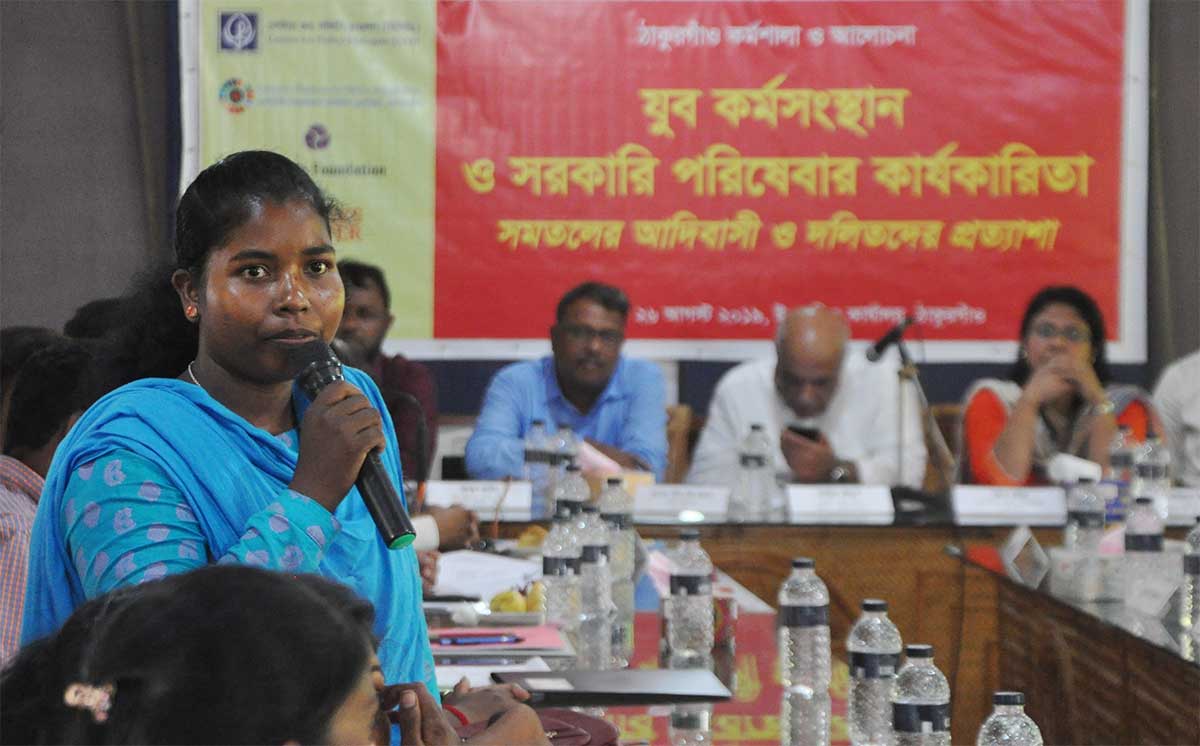
Youth of the marginalised groups, such as plain-land Adivasi and Dalit community, are deprived of getting access to public services required for education and skill development. It will require special attention from policymakers and public service providers to enhance their facilities and to improve their condition with a view to prepare them for employment.
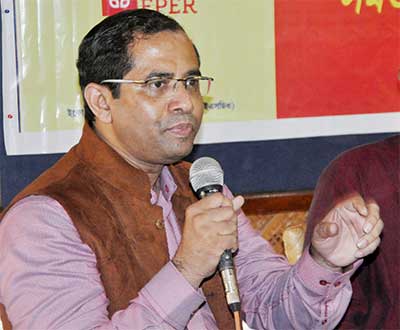 Participants at a workshop on Youth Employment and Effectiveness of Public Service: Perspectives from Plain-land Adivasi Community and Dalits shared these observations on 26 August 2019 in Thakurgaon. The workshop was organised jointly by Centre for Policy Dialogue (CPD), The Asia Foundation, Citizen’s Platform for SDGs, Bangladesh, Eco Social Development Organization (ESDO) and HEKS/EPER at the Chetona Bikash Kendra, ESDO office, Thakurgaon.
Participants at a workshop on Youth Employment and Effectiveness of Public Service: Perspectives from Plain-land Adivasi Community and Dalits shared these observations on 26 August 2019 in Thakurgaon. The workshop was organised jointly by Centre for Policy Dialogue (CPD), The Asia Foundation, Citizen’s Platform for SDGs, Bangladesh, Eco Social Development Organization (ESDO) and HEKS/EPER at the Chetona Bikash Kendra, ESDO office, Thakurgaon.
At the beginning of the workshop, participants took part in spot survey on their aspirations about employment where they also shared their views on academic and skill development institutions available for them and the challenges they face for employment.
Dr Khondaker Golam Moazzem, Research Director, CPD, made a presentation on a comparative scenario of Thakurgaon among the other districts of Rangpur division in terms of education, training, employment and relevant public services. After the presentation youth participants took part in a facilitated interactive session. At this session youth representatives shared the challenges to getting access education, skill development and employment opportunity. These challenges includes inadequate public services, racial discrimination from various parts of the society, language barrier for skill and knowledge development among others. Besides, they also shared their aspirations on skill development and employment opportunities.
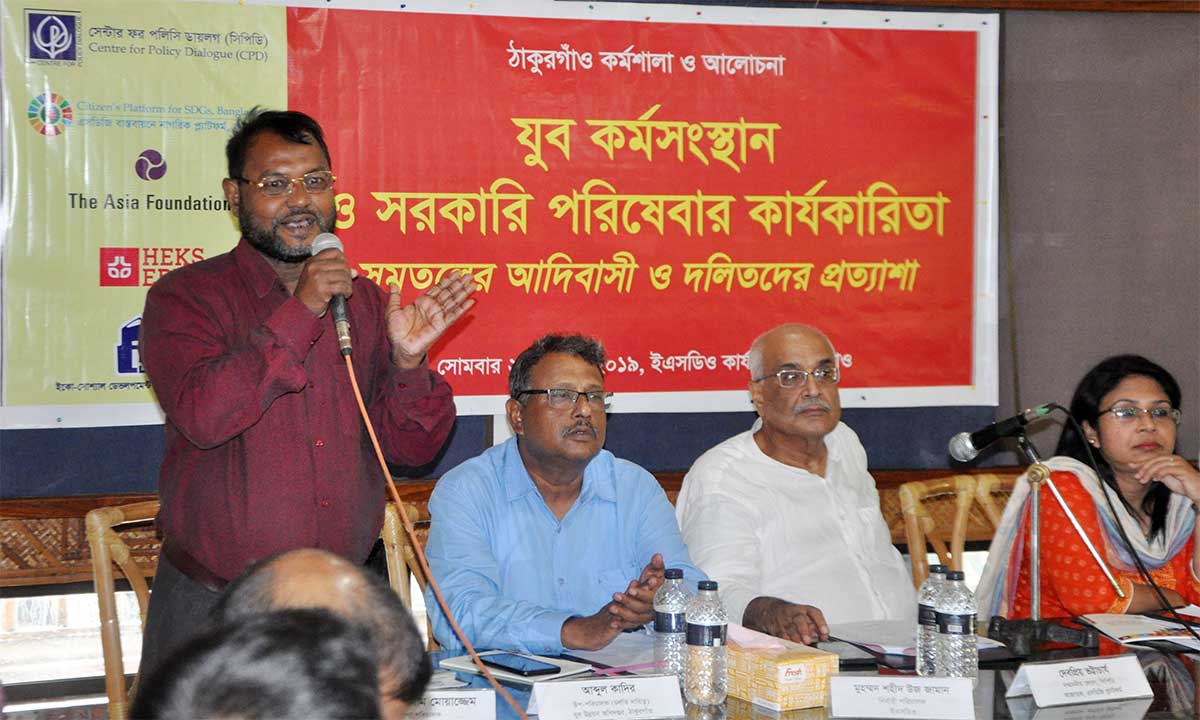
Mr Abdul Quadir, Deputy Director (Continuing Responsibility), Department of Youth Development, Thakurgaon, was present at the workshop as Special Guest. He mentioned that the government is sincere in undertaking projects for livelihood development of the plain-land Adivasi and Dalit community. The Department of Youth Development will take necessary steps for providing adequate training for skill development of their youth community. We will also look into their needs with special attention and do needful for enabling them for the country’s workforce.
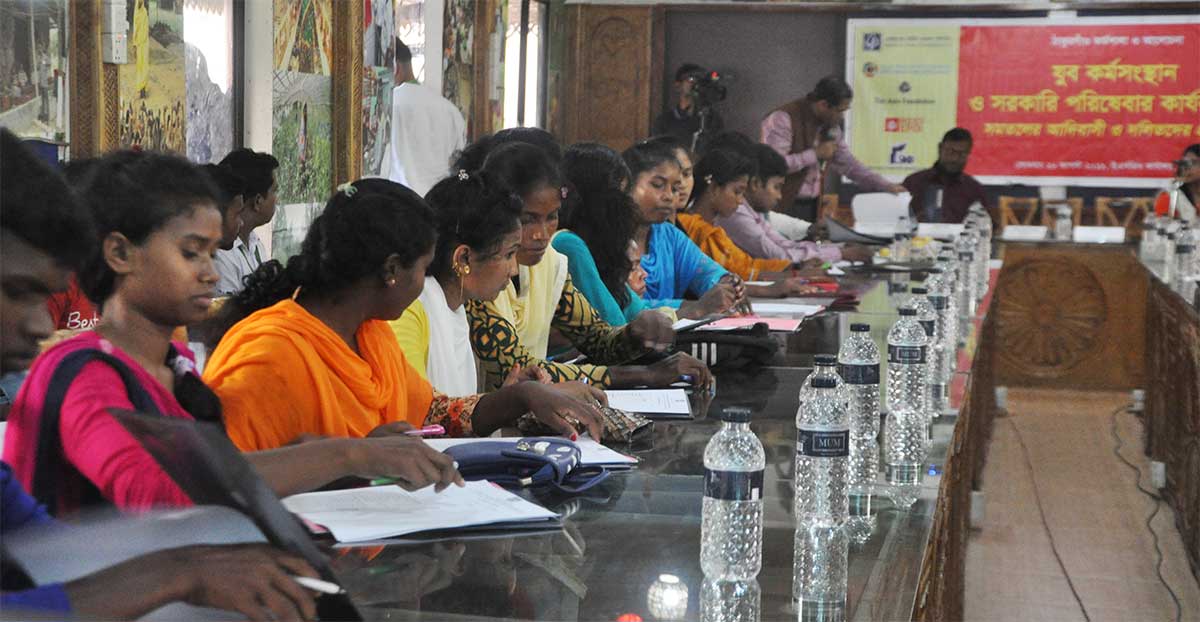
As the Special Speaker at the event Dr Debapriya Bhattacharya, Distinguished Fellow, CPD, Convenor of the Citizen’s Platform, said that it is the high time for the government to create special provisions for the marginalised youth community ensuring access to quality education, skills and employment. The public institutions should come forward with improved and quality public services to support government’s policies and national agenda for youth development. This will eventually support achieving the global goals such SDGs and realising national five year plans accordingly.
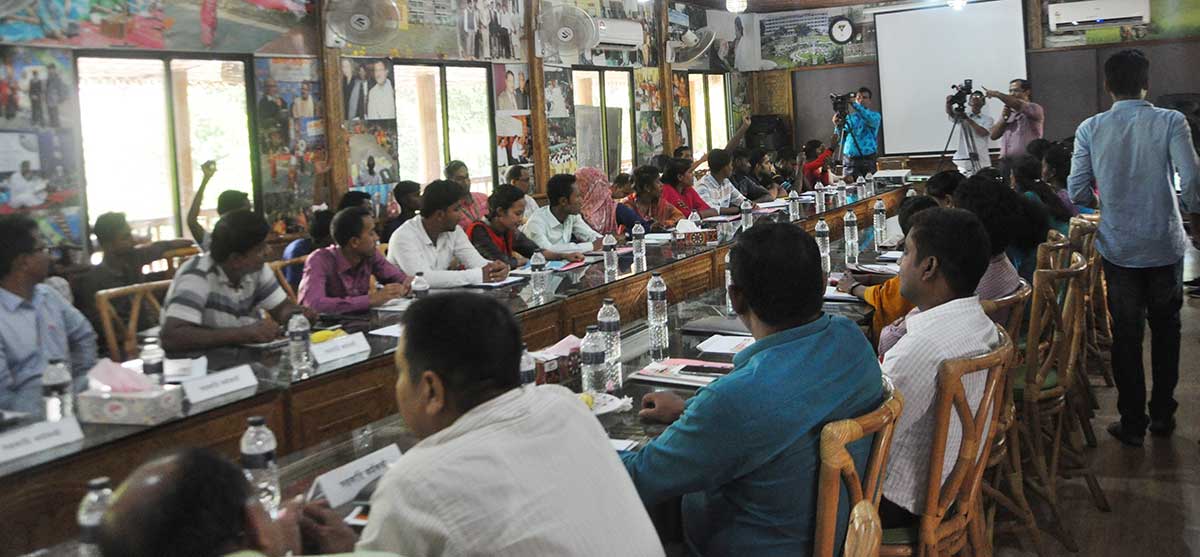
Mr Shahriar Mahmud, Principal Eco Institute of Technology (EIT), Thakurgaon, shared his observation on youth employment scenario in Thakurgaon. Ms Nurun Nahar, Manager, Market Development, HEKS/EPER, underscored the importance on effective collaboration among government and non-government initiatives for employment generation for the youth from plain-land Adivasi and Dalit community towards achieving the SDGs.
Chaired by Dr Md. Shahid Uz Zaman, Founder Executive Director of ESDO, the workshop was participated by around hundred participants from among youth representatives from plain-land Adivasi and Dalit community, representatives from government and non-government organisations, academics and researchers among others.
